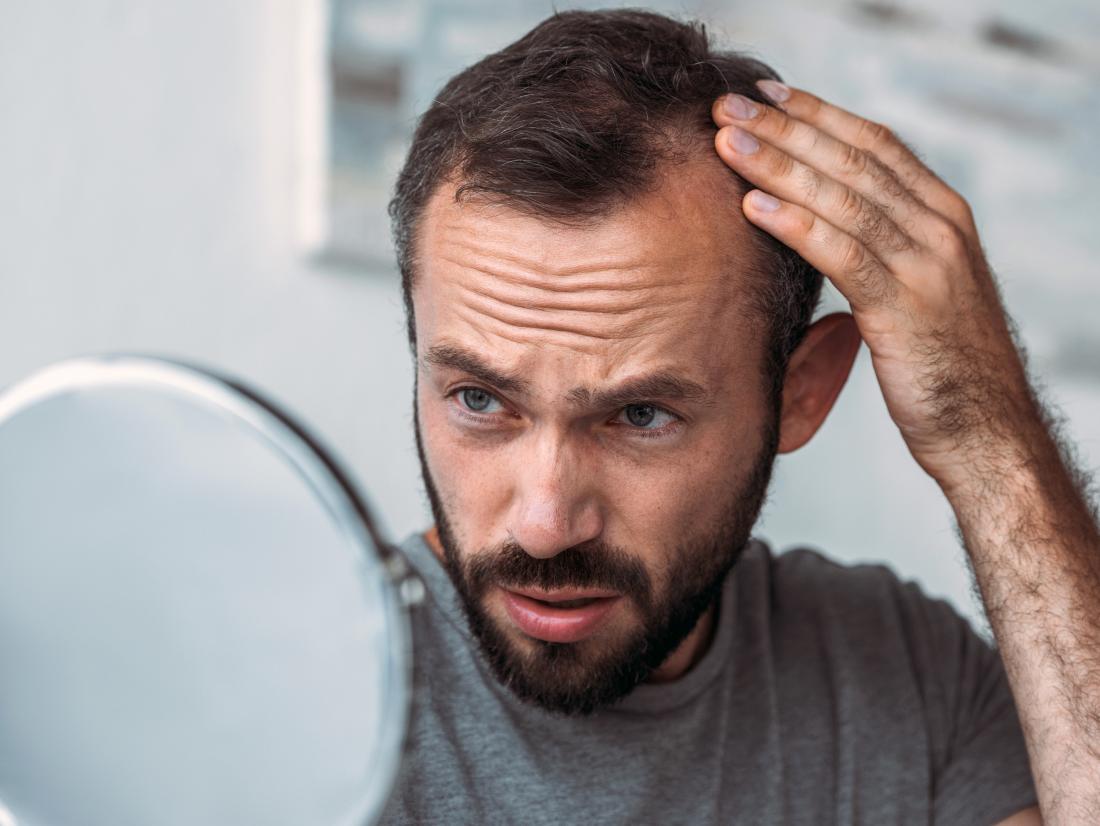Is your hair falling out more than usual? Are you noticing clumps of hair in your brush or shower drain? The culprit could be closer than you think – it might be your thyroid. Your thyroid, a small but mighty gland in your neck, plays a huge role in your overall health, including the health of your hair. In this article, we’ll explore how your thyroid can contribute to hair loss and what you can do about it. Get ready to delve into the surprising connection between your thyroid and your hair health.
How Can I Control My Hair Fall Due to Thyroid?
Thyroid conditions can lead to hair loss, but there are treatments available to help manage the condition and improve hair growth. Here are some tips on how to control hair fall due to thyroid:
1. Talk to your doctor about medication options: There are many different types of thyroid medications available, so it’s important to work with your doctor to find the one that’s right for you. Some common options include levothyroxine (Synthroid), liothyronine (Cytomel), and natural desiccated thyroid (NDT).
2. Manage stress levels: Stress can contribute to hair loss, so it’s important to find ways to manage stress if you have a thyroid condition. This may include relaxation techniques such as yoga or meditation or talking to a therapist.
3. Get regular exercise: Exercise can help improve circulation and promote healthy hair growth. It’s important to find an exercise routine that works for you and stick with it on a regular basis.
4. Eat a healthy diet: A healthy diet is important for overall health and can also help improve hair growth by providing the nutrients needed for strong hair follicles.

How Do I Know If My Thyroid Is Causing Hair Loss?
There are a few different ways to tell if your thyroid is causing hair loss. One way is to look at the overall pattern of hair loss. If you’re losing hair all over your head, it’s more likely that a health condition like hypothyroidism is to blame.
Another way to tell if your thyroid is causing hair loss is by looking at other symptoms you may be experiencing. Common symptoms of hypothyroidism include fatigue, weight gain, and dry skin. If you’re experiencing any of these along with hair loss, it’s more likely that your thyroid is the root cause.
Finally, you can ask your doctor to test your thyroid hormone levels. If they find that you have low levels of thyroid hormones, it’s a good indication that your thyroid isn’t functioning properly and could be the cause of your hair loss.
What are the Early Warning Signs of Thyroid Problems?
The thyroid gland is located in the front of the neck and produces hormones that regulate many body functions, including metabolism. Thyroid problems can occur when the gland doesn’t produce enough hormones (hypothyroidism) or when it produces too much (hyperthyroidism). Early warning signs of thyroid problems can include fatigue, weight gain or loss, dry skin, brittle nails, hair loss, muscle aches, and joint pain. If you experience any of these symptoms, it’s important to see your doctor for a diagnosis.

Can Thyroid-Related Hair Loss Be Reversed?
Thyroid-related hair loss can often be reversed with the proper treatment. Thyroid issues can lead to hair thinning, dryness, and brittle texture, but once the underlying thyroid condition is addressed, the hair loss often improves. If the hair loss is caused by hypothyroidism, which is an underactive thyroid, getting on the right medication can help to balance out hormone levels and promote healthy hair growth.
It’s important for individuals experiencing hair loss to consult with a healthcare professional to determine the cause of their hair loss and develop a treatment plan that addresses any thyroid issues. In addition to medication, other lifestyle changes such as reducing stress, eating a balanced diet, and using gentle hair care products can also help promote hair regrowth. While reversing thyroid-related hair loss may take time and patience, it is often possible with the right medical intervention and self-care.

Credit: www.medicalnewstoday.com
How to Stop Hair Fall Due to Thyroid
If you’re experiencing hair fall due to thyroid issues, there are a few things you can do to help stop the shedding and promote regrowth. First, it’s important to get your thyroid levels checked by a doctor to ensure that they’re in the normal range. Once you have a confirmed diagnosis, you can work with your doctor to find the best treatment option for you.
This may include medication, dietary changes, or supplements. In addition, there are some at-home treatments you can try to help improve your situation. These include massaging your scalp with an essential oil blend, using gentle shampoos and conditioners, and avoiding tight hairstyles. With patience and perseverance, you can get your hair loss under control and start seeing new growth in no time!
Can hair loss occur due to thyroid issues? Will it grow back? – Dr. Rasya Dixit
Frequently Asked Questions [FAQs]
Can thyroid problems cause hair loss?
Yes, thyroid problems can cause hair loss. Both hypothyroidism (an underactive thyroid) and hyperthyroidism (an overactive thyroid) can lead to hair loss due to the thyroid gland’s role in regulating your body’s metabolism, including hair growth. If your thyroid is not working properly, it can disrupt the hair growth cycle and lead to hair loss.
How does hypothyroidism cause hair loss?
Hypothyroidism can cause hair loss because the thyroid hormone plays a crucial role in the development and maintenance of hair follicles. When there’s not enough thyroid hormone, it can disrupt the hair growth cycle, causing more hair to enter the resting phase and leading to thinning hair or hair loss.
Can hyperthyroidism cause hair loss, too?
Yes, hyperthyroidism can also cause hair loss. An overactive thyroid can speed up your metabolism, which can lead to an accelerated hair growth cycle. This can result in the hair follicles not having enough time to grow new hair before the old hair is shed, causing thinning hair or hair loss.
Is the hair loss from thyroid problems permanent?
No, the hair loss from thyroid problems is usually not permanent. Once the thyroid disorder is treated and the thyroid hormone levels are back to normal, the hair growth cycle should return to normal as well. However, it may take several months for the hair to regrow.
How can I treat hair loss from thyroid problems?
The best treatment for hair loss due to thyroid problems is to treat the underlying thyroid disorder. This typically involves medication to regulate your thyroid hormone levels. Additionally, eating a healthy diet, getting regular exercise, and reducing stress can also help improve your overall health and potentially help with hair regrowth.
Can other autoimmune diseases cause hair loss?
Yes, other autoimmune diseases can cause hair loss. For example, alopecia areata is an autoimmune disease that causes hair to fall out in small, round patches. Lupus is another autoimmune disease that can lead to hair loss.
Conclusion
Your thyroid indeed plays a vital role in maintaining your hair’s health, and any imbalance can lead to hair loss. However, it’s crucial to remember that hair loss can be due to many factors, and it’s essential to seek medical advice to understand the root cause. Thyroid-related hair loss is treatable, and with the right diagnosis and effective treatment, you can restore your hair’s health.
Your hair is a reflection of your overall health, so don’t ignore any signs. Can your thyroid make your hair fall out? Yes, it can, but remember, it’s not the end of the road. With proper care and treatment, you can regain both your hair and health.
